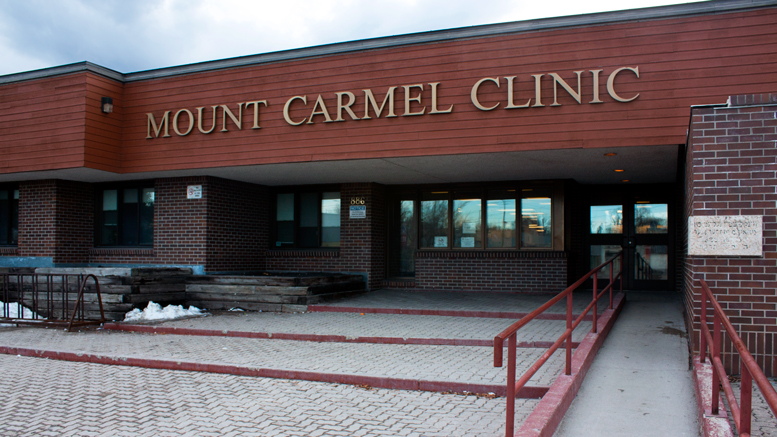The Winnipeg Interprofessional Student-run Health (WISH) Clinic is creating a bridge between quality community health care and disadvantaged people living in Winnipeg’s inner city.
Situated in the Mount Carmel Clinic on Main St., the WISH clinic provides non-judgmental, socially responsible, holistic health care to a population that struggles with poorer health outcomes than the rest of the city, according to its online profile.
The WISH Clinic is staffed by volunteer students from the University of Manitoba every Sunday. Among the faculties and departments represented in the 635 volunteer shifts filled in 2012-13 were medicine, nursing, pharmacy, occupational therapy, human ecology, dental hygiene, dentistry, and science.
“WISH’s presence at Mount Carmel Clinic on Sunday afternoons means that Point Douglas residents can access high-quality health care on a day which many clinics are closed,” reads the Clinic’s 2012-13 annual report.
“We have much evidence that WISH is succeeding in its mission at Mount Carmel – in the last quarter, when we started keeping more extensive records, we recorded that five out of the 23 clinical visits were WISH repeat clients.”
Liam Fullerton, WISH Clinic co-chair, said the clinic stands out from other community health care providers through its holistic approach.
“We as a clinic specialize in a community care, in a care that is more encompassing,” he said.
Fullerton added that the clinic is not meant for emergency care or to serve as a crisis centre and emphasized that it looks beyond the initial clinical needs of a patient to offer more well-rounded care.
“We don’t look at the surface,” he said. “We figure out why they are in this position, what is contributing to this, and whether we can help with that at all.”
The centre provides services through post-secondary students working alongside licensed volunteer mentors from a broad range of disciplines, from dental hygiene and medical rehabilitation to social work and spiritual care.
Fullerton noted students are never alone with a patient and said less experienced volunteers are paired with more seasoned students or professionals.
“We never pair two inexperienced people together and no one is ever in a room alone with anybody else. At WISH, it is always two people,” he said.
Beyond sharing and building experience, Fullerton said the clinic fosters learning between disciplines.
“We really focus on inter-professional work,” he said. “So nurses learn from doctors, doctors learn from nurses, pharmacists [are] learning from occupational therapists and there is a lot of inter-learning between those disciplines that does not happen outside of WISH.”
“A lot of people even tell us that they gain better experience at WISH and they have been able to carry that on to their secondary professions,” said Fullerton. “We have had some of our pharmacy students come back to be a mentor for us later, which is great.”
The WISH Clinic provides free community health services and a walk-in clinic open Sundays between 1:30 and 4:30 p.m.


